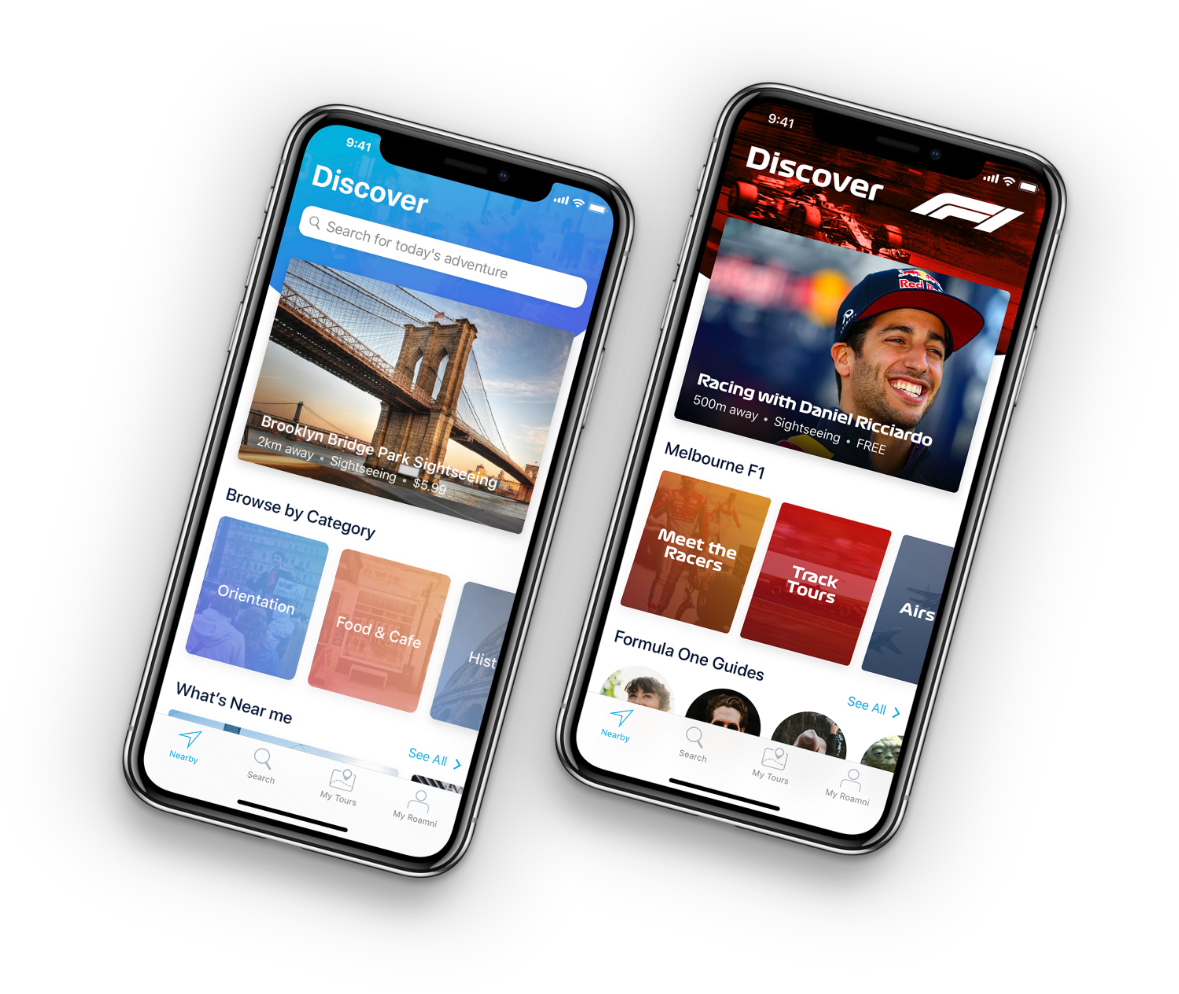How AI Will Change Software Development and Applications
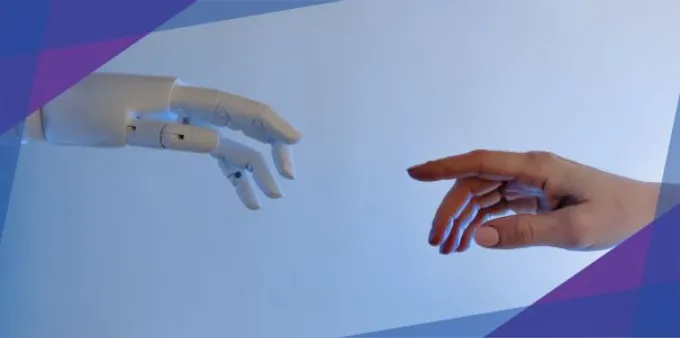
I’ve been keeping an eye on how AI is transforming software development, and it’s nothing short of breathtaking. It’s like watching the industry grow superpowers overnight.
From being simple tools, AI has turned into an intelligent companion that learns, adapts, and even surprises us with what they can do. It’s exciting to witness how this shift is changing everything about how we build and create.
As an app publisher, you might be asking yourself: “How exactly will AI impact the apps I create and the entire software development process?”
The way I see it, AI isn’t simply a trend. It’s a game changer that’s already shifting the way we do things. AI isn’t waiting for anyone—it’s driving change at breakneck speed. If you’re not leveraging it, your competitors likely are, and they’re pulling ahead.
According to a 2024 IBM report, 42% of companies with more than 1,000 employees say they’re already using AI in their business. Another 40% are testing it.
Source: CNN’s YouTube Channel
To ensure you’re future-proofing your work, let me share insights into how AI is reshaping app development for both publishers and app developers. Keep reading to discover how you can leverage the tool to your advantage.
What AI Means for the Future of Software Development and Apps
1. AI serves as a creative partner for app publishers
For years, I’ve worked with businesses that have struggled with the constant pressure of improving user experience and boosting conversions. Whether it was finding ways to personalize app content, streamline workflows, or analyze mountains of user data, the challenges were always the same: limited time, resources, and insights.
Enter AI.
Today, artificial intelligence tools make it easier than ever to overcome these hurdles. They empower app publishers to predict user behavior, automate repetitive tasks, and create personalized experiences.
For example, AI can analyze user data in real-time to predict what a user might want next—like suggesting the perfect playlist on a music app before the user even hits “play.”
Source: Wall Street Journal’s YouTube Channel
It’s also automating tasks that once took hours, such as content moderation or customer support, by using chatbots that handle basic inquiries instantly.
With AI-driven personalization, apps can tailor content, offers, and notifications to each user’s preferences, creating a more engaging experience. These are the kinds of behind-the-scenes tools that turn an app from “good enough” to “can’t live without.”
2. AI results in smarter apps, happier users
Now, let’s talk about the big win for users: AI-driven personalization.
When I first saw how Netflix app used AI to personalize content, I was blown away by how seamlessly it worked. The recommendations weren’t random—they were spot-on, often making me discover shows I didn’t know I wanted to watch.
This level of personalization has driven higher user engagement and retention for Netflix, helping them maintain their massive subscriber base. As of the third quarter of 2024, Netflix had approximately 282.7 million paid subscribers worldwide.
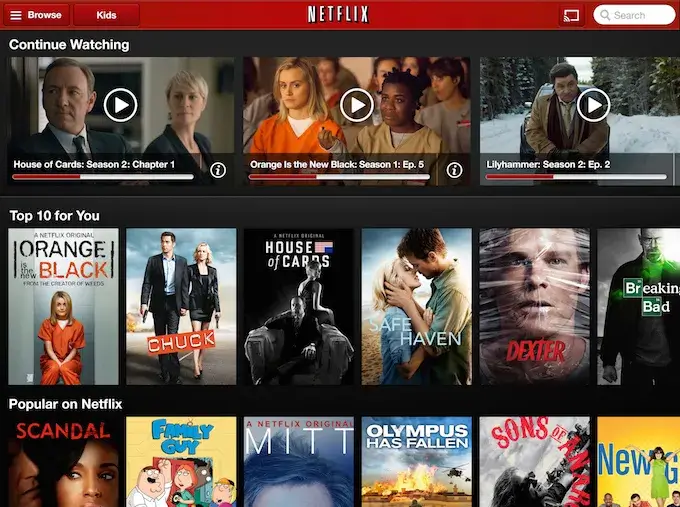
You can integrate similar AI-powered recommendation engines to make your app smarter. Whether it’s suggesting products, content, or features, AI can learn from user behavior to predict what they might want next.
The key takeaway here is that users expect apps to feel “personal” now. A whopping 71% of consumers expect personalized experiences. If you’re not using AI to help meet that expectation, you might be falling behind.
![]()
Pro tip: If you’re integrating AI, make sure you’re being transparent about how you use customer data. Users care about their privacy and how you protect their information. When they trust you, they’re more likely to stick around.
You’ll find more actionable tips for keeping your app and users safe in this mobile app security guide. Check it out.
3. AI and automation will transform app operations
AI-driven mobile analytics are changing how app publishers monitor performance, track user behavior, and optimize app operations.
I was particularly impressed by Uber’s use of AI in predicting rider demand. By analyzing patterns, they optimize routes, adjust pricing dynamically, and predict when and where drivers will be needed. This not only improves the rider experience but also ensures that drivers aren’t left waiting idly for passengers.
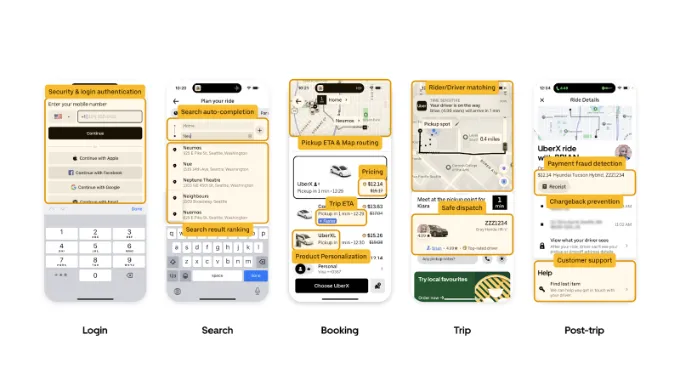
Source: Uber
AI-powered analytics makes it easy to track how your app is performing. It can spot problems like crashes or slow performance and even fix them before your users notice. This smart, proactive approach helps your app stay ahead in today’s competitive market.
4. AI transforms testing from tedious to timely
Anyone who’s ever manually tested software knows the drill. You run the same scenarios over and over, hoping to catch that one bug hiding in the corner of your app. It’s essential, of course, but it can also be exhausting. Thankfully, AI is flipping this process on its head.
The real beauty of AI testing? It doesn’t just speed up the process—it enhances the quality of the product. AI-driven tools can spot edge cases that would’ve slipped through the cracks after hours of manual testing. As an app publisher, you can leverage these tools to ensure your updates are flawless. This means less downtime and happier users.
How AI Impacts App and Software Developers
Now, let me address the elephant in the room: Will AI replace software engineers and take developer jobs? My answer is no, but it will definitely change them—and fast.
Let’s explore how with some real-world examples and data.
1. AI is your new co-pilot, not a replacement
AI isn’t here to replace human software engineers and developers—it’s here to amplify what you do best. It’s here to handle the grunt work, freeing you up to tackle higher-value tasks like ethical AI design, creating more intuitive user experiences, and solving complex problems that only humans can truly grasp.
Take Adobe’s Sensei as an example. It uses AI to analyze images, optimize designs, and suggest improvements based on millions of creative inputs. This allows designers to focus more on the creative aspects of their work, while AI takes care of repetitive tasks like resizing, color adjustments, and even content recommendations.
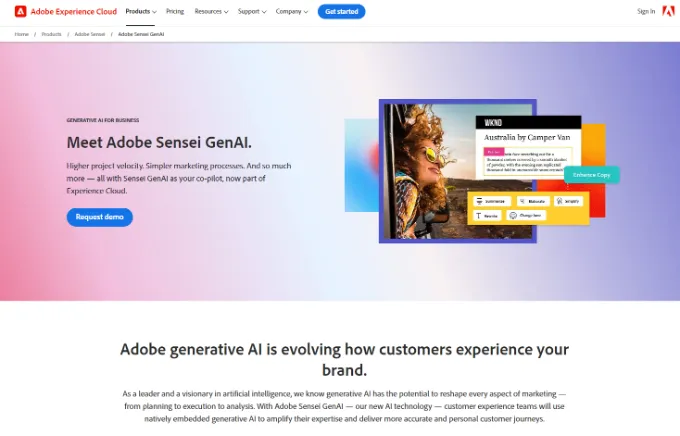
Source: Adobe
AI-driven tools don’t just automate or complete lines of code. They suggest optimizations and even provide alternatives based on millions of lines of data. This allows developers to stay focused on the high-level tasks that require human ingenuity, like creating a seamless user experience or designing an intuitive interface.
It’s a perfect partnership, letting humans tap into creativity without getting bogged down by the technical details.
2. AI helps you become 2x more productive
A recent study by GitHub revealed that developers using AI tools like Copilot complete tasks 55% faster than those who don’t. If you think about it, that’s not just shaving a few minutes off your work—it’s hours saved every week.
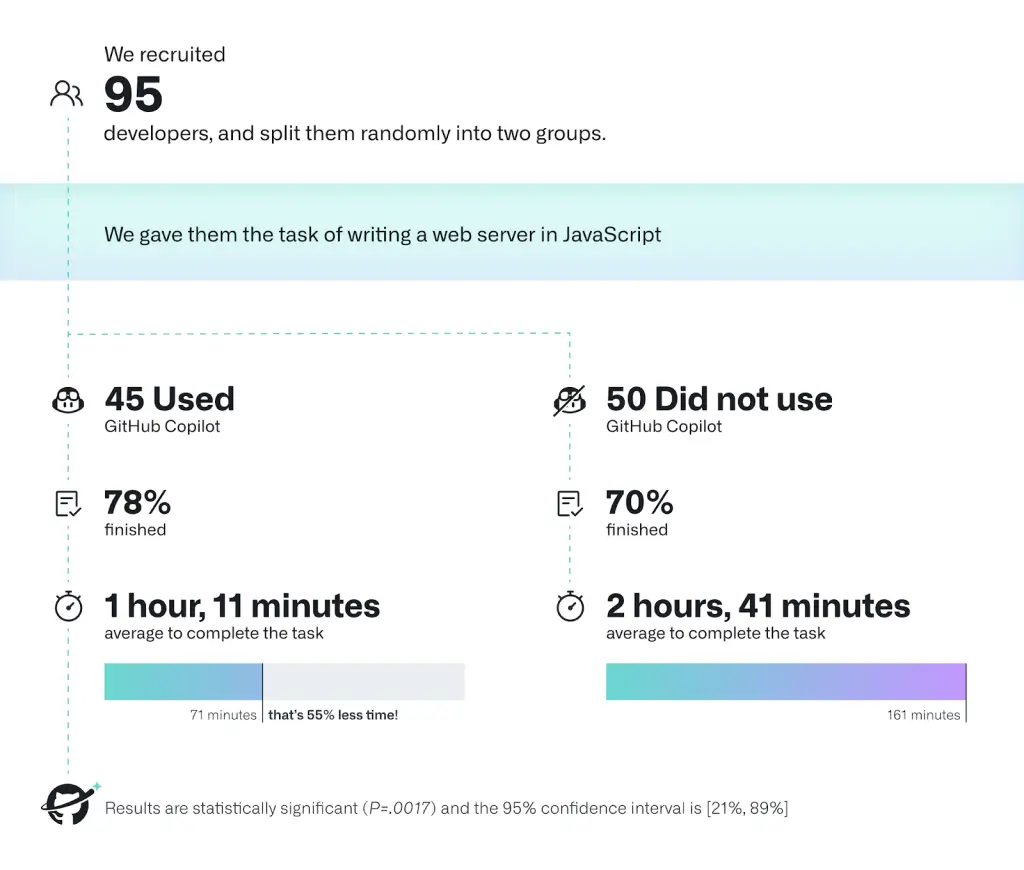
Want to stay ahead in tech? AI is the secret weapon for developers right now. Teams using AI are crushing their projects, hitting deadlines like pros, and becoming the go-to experts everyone wants to hire. Developers who ignore this trend are basically volunteering to become obsolete.
The choice is quite simple: adapt or get left in the dust.
3. AI amplifies your impact as a highly skilled developer
The way I see it, AI will make the unique value you offer as a developer shine even brighter.
AI can crunch data and spot patterns, but it can’t think like a human. It cannot reason through moral dilemmas or understand cultural subtleties. This is where your unique selling points as an app developer or software engineer become invaluable.
AI will make the unique value you offer as a developer shine even brighter.
Let’s take Tesla as an example. Their software engineers are deeply involved in designing AI systems for autonomous driving. Their value doesn’t lie in just coding endlessly—they’re making key decisions about how the car’s AI works.
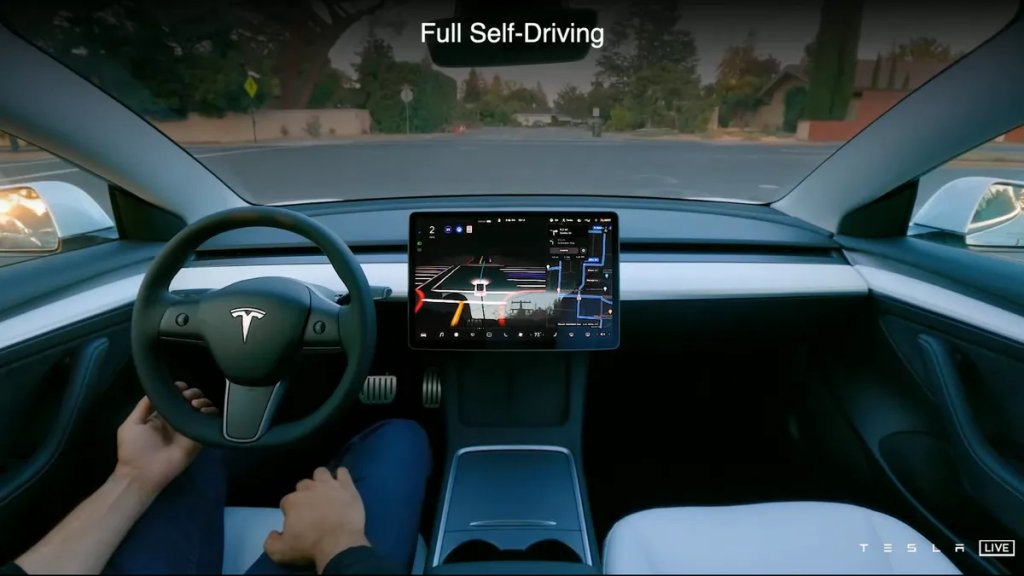
Source: Tesla
Their insights on things like how the car prioritizes safety, handles tricky situations, and ensures it follows ethical AI standards are what make them indispensable. In other words, their human expertise is what truly drives AI forward, ensuring it serves people in ways that machines alone never could.
See related article: 8 Web Developer Soft Skills for Efficient Collaboration
4. AI isn’t perfect—and that’s a job opportunity
Even the biggest brands have seen AI’s limits. Take Amazon’s AI hiring tool, which was said to have displayed some form of bias in the recruiting process, forcing the company to scrap it.
Companies like Google and IBM are also actively hiring “AI ethics officers” and “bias experts” for this reason.
Source: IBM Technology YouTube Channel
My takeaway? AI isn’t infallible. It learns from the data it was fed, and if that data is flawed, so are its decisions.
This creates a new layer of responsibility for developers. You are now curators, ensuring the data AI learns from is accurate, diverse, and unbiased.
You are now curators, ensuring the data AI learns from is accurate, diverse, and unbiased.
But should anyone just build an app with AI?
Here’s a thought: would you ever get on a plane that’s being flown by an autopilot alone without a pilot?
Sure, the autopilot can handle a lot of things—navigating through smooth skies, adjusting course, and even landing in some cases—but we all know that the real expertise comes from the pilot, especially when things get tricky.
The same logic applies to app design and development.
While the use of AI in software development has made the process faster and more efficient, artificial intelligence is not (and shouldn’t be) a replacement for the expertise and experience that comes from working with professionals.
AI can do a lot, but it can’t replace the human touch:
- The ability to understand business needs
- Anticipate potential roadblocks
- Adapt to complex challenges.
This is where expert app development services come into play.
At the end of the day, AI is a tool, and tools need to be used properly to deliver the best results. It’s like having a powerful engine that needs someone who understands how to drive it.
When you partner with a team of experienced developers, you’re not just getting a technically proficient team, you’re getting:
People who can integrate AI tools in the right way, customizing them for your specific needs, ensuring that your app not only works but thrives in a competitive software development world.
And let’s be real: AI can’t factor in your unique business vision, user feedback, or market nuances without guidance.
At the end of the day, AI is a tool, and tools need to be used properly to deliver the best results.
The bottom line: AI changes the game, not the players
So, while AI can certainly help, it’s the expertise behind the app development process that ensures your app stands out for all the right reasons.
Working with a dedicated app development service provider like us is crucial. We bring the strategy, the design, and the technical prowess to make sure AI is just one powerful component of the bigger picture, delivering real value to your users and your business.
Want to ensure your app stands out and delivers real value to users? Contact us for bespoke app development solutions.

Jane Eslabra has 14+ years of experience producing content across traditional and digital platforms. She channels her strong passion for fostering tech startup growth through knowledge sharing.


